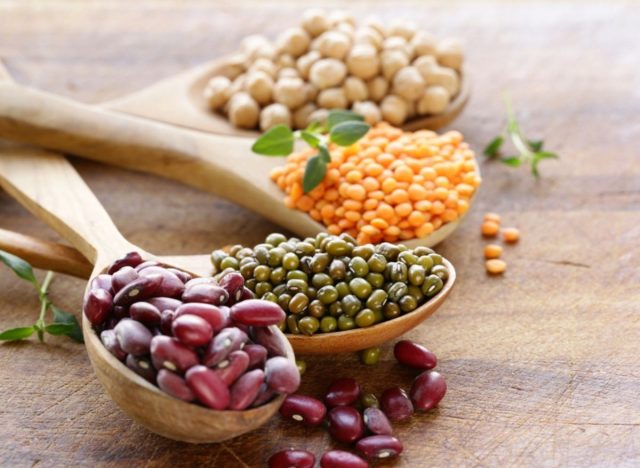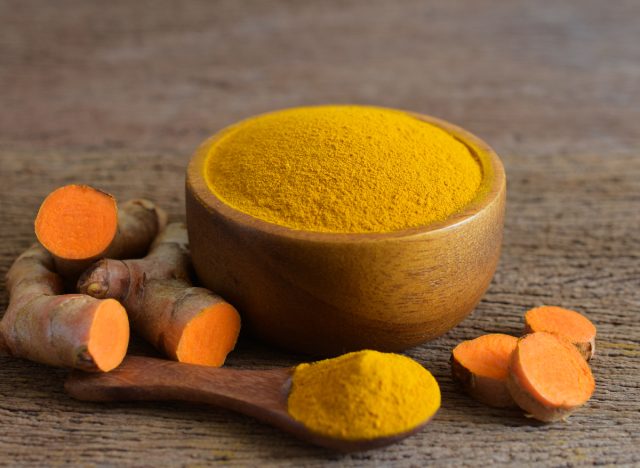7 Sneaky Habits That Slow Down Aging To Start Right Now

Wellness experiences, anti-aging tonics, and skincare products that promise all the youthful feels are so in right now—and for good reason. People want to do everything in their power to look and feel younger. But did you know that there are some little, pretty sneaky habits that slow down aging you can easily incorporate into your everyday life? Most of them don't cost a thing, and all of them will make a major difference. Keep reading to learn more about these seven key lifestyle habits you'll want to start doing right now.
Hold on to genuine friends; they're priceless.

Having a valued, supportive relationship with friends is linked to an overall happier and healthier well-being. Researchers at the University of Michigan sent out a survey to 271,053 adults to learn the benefits elderly individuals obtain from keeping close relationships and friendships (via Newsweek). The study indicates that when senior individuals cherish their friendships, their overall performance seems to improve.
Receiving support from various relationships and truly estimating the value is incredibly beneficial. So, keep your friends and loved ones close, because the gift of friendship is truly priceless!
Related: The Top 5 Walking Habits That Slow Aging, Fitness Expert Reveals
Wake up each day with a purpose.

If you're thinking of retiring to "smell the roses," perhaps consider planting a few flower gardens and tending to them as well! It's important to really live during your lifetime and continue embracing new interests, hobbies, plans, or goals. Retirement has been associated with a lower life expectancy, according to research, and it has to do with staying active and motivated as you age.
In Okinawa, Japan, many elderly individuals live to be centenarians and beyond. (According to Blue Zones, Okinawa was referred to as "the land of immortals" at one point.) Okinawans believe in "ikigai," which means waking up every day with a purpose. So have a reason to get going when your alarm rings in the AM. Think of each day in life as a present, and unwrap every single one of your gifts, and enjoy!
Related: The Best Fitness Habits That Slow Aging, Trainer Reveals
Ditch the meat, and opt for a plant-based diet.

Eating a diet that's plant-based can help you live longer, a study reveals (via Good Morning America). What exactly is a plant-based diet? Well, it's a diet that contains mostly (or all) plants! The research reveals that life expectancy increases when maintaining a diet of foods like legumes, whole grains, vegetables, and fruits. It's also important to reduce how many sweetened drinks, refined grains, and processed meats you put into your body. Sticking with this "optimized diet" can apparently tack on as much as 10 to 13 years to your life.
Eat more legumes and nuts.

Beans and more beans really are good for your heart—and nuts are really healthy, too. Research published in PLOS Medicine reveals that eating more legumes can add an additional 10 years to your lifespan. Swapping out red meat for legumes is key, and the earlier you start in life with this change, the healthier you will be.
As far as nuts are concerned, individuals who consume nuts on a daily basis have a decreased chance of dying from heart disease, cancer, and respiratory disease, according to Harvard Health Publishing. Dr. Frank Hu, study co-author and professor of nutrition and epidemiology at the Harvard School of Public Health, states, "We found that people who ate nuts every day lived longer, healthier lives than people who didn't eat nuts." (By the way, we learned from the study that peanuts are classified as legumes and were considered nuts for purposes of this particular study.)
Related: Follow These Healthy Habits To Live to 100 and Beyond, Science Says
Live by the "active grandparent" hypothesis.

The "active grandparent" hypothesis is a thing, and it's a good one. According to Harvard Health Publishing, the idea is that the human species exists and advances by keeping up with their fitness during their lifespan. This consistent routine helps prevent chronic health issues such as heart disease.
Daniel E. Lieberman, paleoanthropologist and a professor of human evolutionary biology at Harvard University explains, "Hunter-gatherers had to be physically active to avoid starvation. And as our Stone Age ancestors grew older, they kept foraging to provide surplus food for their children and grandchildren. But according to the 'active grandparent' hypothesis, that late-in-life physical activity also helped them live longer, healthier lives." The "active grandparent" hypothesis suggests that humans have been more physically active in later life, which is a reason for extended, healthier lifespans.
Be social in a neighborhood or community that's a perfect fit for you.

It's important to identify the people who make you happiest, don't isolate yourself, and embrace a sense of community. Research actually shows that in addition to experiencing improved mental wellness, individuals who maintain solid social bonds have a 50% decreased risk of mortality.
There are plenty of studies out there that associate an active social life with longevity, so it's crucial to keep those social skills strong and not isolate yourself. According to Lisa Berkman, director of the Harvard Center for Population and Development Studies and Thomas D. Cabot Professor of Public Policy and of Epidemiology at Harvard T.H. Chan School of Public Health, the stress that comes with being isolated can wreak havoc on your immune system, making it weak and vulnerable to illness (via Harvard T.H. Chan School of Public Health).
Add some turmeric to your spice cabinet pronto.

If you haven't hopped aboard the turmeric train yet, you should do so ASAP, because this is another one of the sneaky habits that slow down aging. Turmeric is a must-have in your spice cabinet. In fact, once you learn the tremendous health benefits of this orange-colored spice, you'll be adding it to just about everything from smoothies to oatmeal to soups to scrambled eggs!
According to Cleveland Clinic, turmeric is said to decrease inflammation, lessen your risk of heart disease, help sharpen your memory, lower depression, and reduce cancers. Plus, it's extremely beneficial to individuals who suffer from ulcerative colitis. In fact, a study revealed that individuals with ulcerative colitis who consumed 2 grams each day (in addition to any prescription meds) seemed to remain in remission longer than individuals who skipped out on the turmeric.








